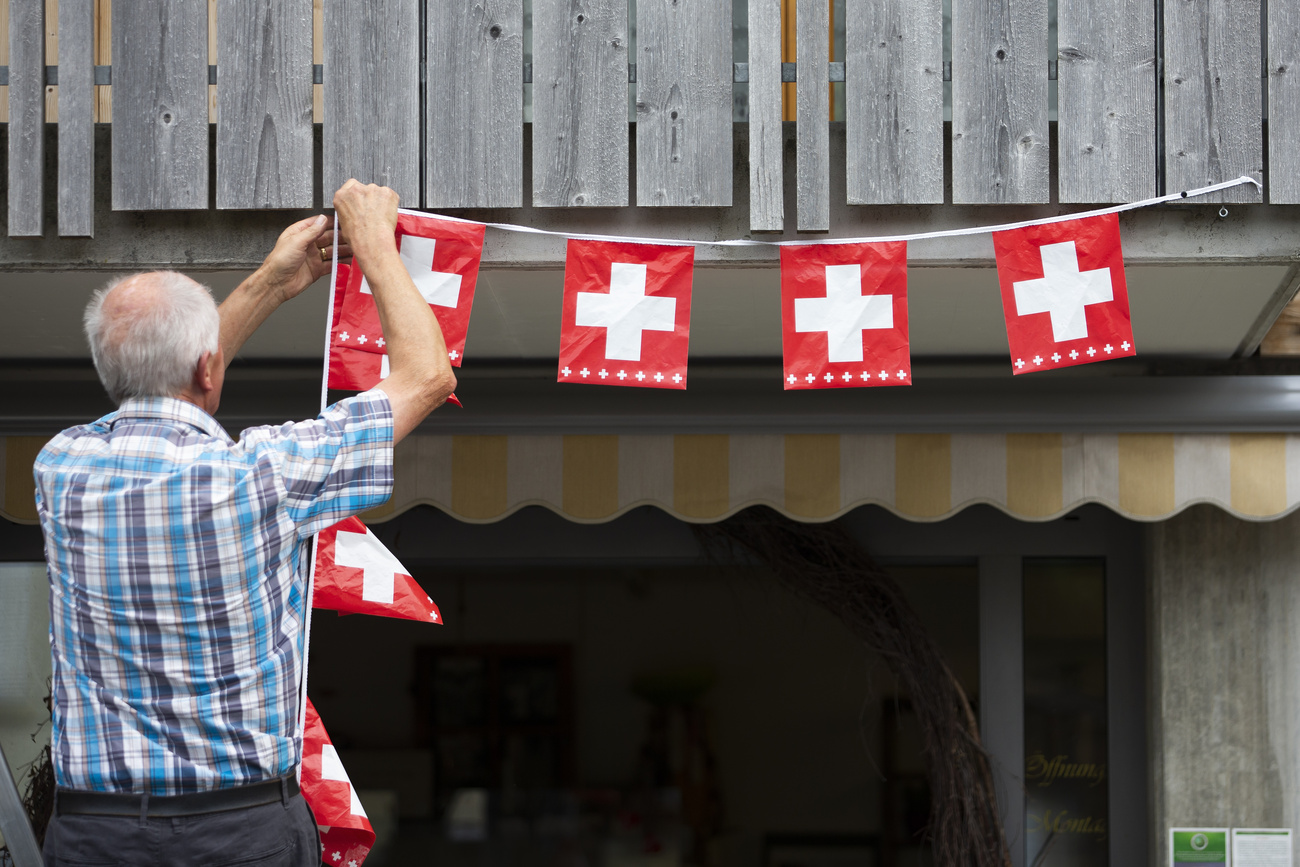
Seeking closer ties between Bern and Jakarta

Switzerland and Indonesia will launch negotiations aimed at increasing bilateral trade ties following a visit to Jakarta by Economics Minister Doris Leuthard.
The deal is to cover trade in goods and services, investment promotion and the protection intellectual property rights as well as public tenders and economic cooperation.
“So far Swiss companies have not acknowledged the enormous potential of Indonesia which has the world’s third largest domestic consumer market. But the Swiss government has included Indonesia in its list of priority countries,” said Leuthard, who is also this year’s Swiss president.
She was speaking after a meeting with Indonesian President Susilo Bambang Yudhoyono on Wednesday.
Leuthard added that Indonesia was planning to invest in infrastructure projects and in the energy sector where Switzerland has important knowhow.
“The free trade deal will grant improved conditions for Swiss investors,” she said.
Leuthard went on to say that the two countries complemented each other well, since Indonesia has an important textile industry which operates with Swiss machines.
Quality
Sri Prakash Sekhani, director of Indorama, a world leader in petro-chemical products, confirmed that it is an ideal combination and that a stronger presence of Swiss companies would not be seen as a danger to local firms.
“Switzerland is known for its quality products which target a special segment of the consumer market. To put it in a nutshell: Those who want a Toyota car buy a Toyota. But those looking for a Rolls Royce will buy a Rolls Royce,” he said.
For his part Gerold Bührer of the Swiss Business Federation (Economiesuisse) is confident that the accord will help increase economic ties.
“Switzerland has concluded accords with 23 non-European countries which have led to an considerable increase in business.”
At the moment Swiss investment in Indonesia amounts to about SFr6 billion ($5.7 billion) and creates about 43,000 jobs, according to Bührer, who pointed out that this was “a far cry from the massive presence of Swiss firms in other Asian countries.”
Labour standards, corruption
Other issues highlighted during the visit by the Swiss delegation were labour standards and the fight against corruption which could be hindering foreign investments.
To this end a project, Sustaining Competitive and Responsible Enterprises, has been launched jointly with the International Labour Organization (ILO), Indonesia’s labour ministry as well as local employers and trade unions.
It is supported by the Swiss Secretariat for Economic Affairs (Seco) and aims to improve the implementation of labour rights for employees of small and medium-sized enterprises in Indonesia.
The initiative covers the abolition of forced labour and child labour, regulations to avoid discrimination, the introduction of collective contracts as well as improved safety measures at the workplace.
ILO experts will inspect premises, check working conditions and organise courses on prevention and awareness campaigns.
Seco’s Beatrice Maser Mallor says it is possible for companies in developing countries to be competitive while respecting labour rights.
“The products and the production processes get better if workers benefit from better conditions,” she said.
It is even an advantage at an international level, because consumers in a globalised market are increasingly conscious of labour issues, according to Maser Mallor.
Religion
During her visit Leuthard held talks with moderate Muslim leaders in Indonesia – the world’s biggest Muslim country and a model for the peaceful coexistence of different religions.
After the 2002 attacks on Bali the Indonesian government launched a series of programmes to fight poverty and promote education aimed at curtailing the potential influence of Muslim extremist groups.
Leuthard was assured in the talks that the constitutional rights take precedence over sharia law in Indonesia.
The Muslim leaders were not overly concerned about a debate in Switzerland over a ban on new minarets and burkas, Leuthard said afterwards.
But they called on her to integrate the different religious communities in a dialogue to further an exchange of opinions and to reduce mistrust and suspicion.
Andrea Clementi, swissinfo.ch in Jakarta (adapted from Italian by Urs Geiser)
Exports from Switzerland to Indonesia stood at SFr371 million last year against imports of about SFr170 million according to the State Secretariat for Economic Affairs.
In Indonesia there are 874 registered Swiss citizens, according to 2009 figures by the Organisation of the Swiss Abroad.
Switzerland and Indonesia have signed a declaration of intent to boost cooperation in tourism.
A project worth SFr5 million over four years is designed to boost sustainable tourism on the island of Flores near Bali. It is led by the Swisscontact foundation and funded by Seco.
Both sides signed a visa-waver programme for diplomats and diplomatic personnel.
The Swiss delegation also called for direct air links between Zurich and Jakarta.

In compliance with the JTI standards
More: SWI swissinfo.ch certified by the Journalism Trust Initiative
















![The four-metre-long painting "Sonntag der Bergbauern" [Sunday of the Mountain Farmers, 1923-24/26] had to be removed by a crane from the German Chancellery in Berlin for the exhibition in Bern.](https://www.swissinfo.ch/content/wp-content/uploads/sites/13/2025/12/01_Pressebild_KirchnerxKirchner.jpg?ver=a45b19f3)











You can find an overview of ongoing debates with our journalists here . Please join us!
If you want to start a conversation about a topic raised in this article or want to report factual errors, email us at english@swissinfo.ch.